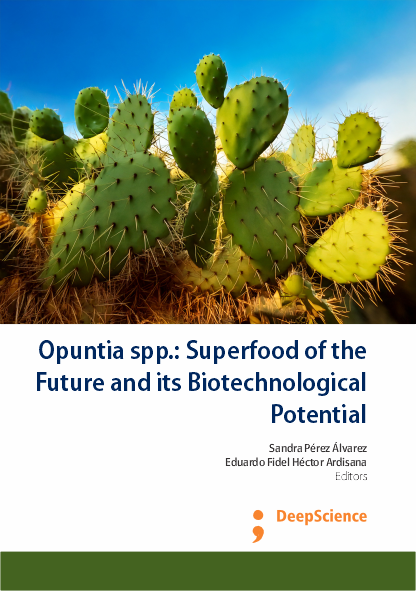Biotechnological advances in Opuntia
Synopsis
Biotechnology today is part of numerous agricultural and industrial processes, contributing through its ability to increase speed, scale production, while also acting at localized levels such as cells, organelles, or genetic information, and providing clean products that contribute to environmental preservation.
The demonstrated usefulness of Opuntia spp. for obtaining products of various kinds, as well as the ability of plants from this genus to grow in arid lands, making the most of scarce nutrients and limited water, with high biomass production per unit of area, have led to research aimed at maximizing these properties through biotechnological techniques.
Some of the research findings on the application of biotechnology in Opuntia spp. are already being implemented, such as those related to the mass multiplication of plants through in vitro culture techniques (El Finti et al., 2013; Rodríguez & Ramírez-Pantoja, 2020; Mabrouk et al., 2021; Portillo and Soltero, 2021). Genetic studies have been developed to an acceptable level, but their application has not gone beyond the field of phylogenetics. Other approaches, such as transgenesis, are still being refined (Felker et al., 2018; Angulo-Bejarano et al., 2019). The most important advances achieved in recent years are reviewed below














